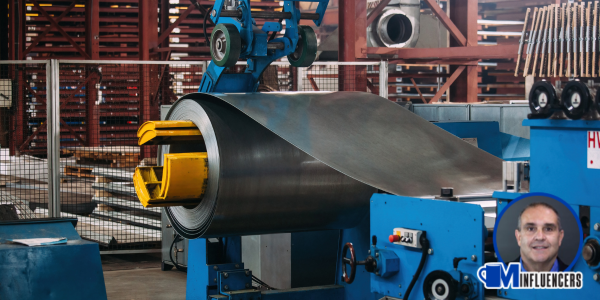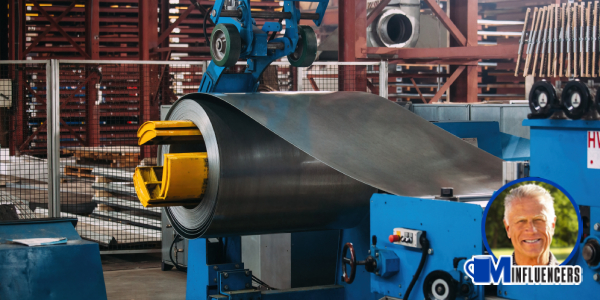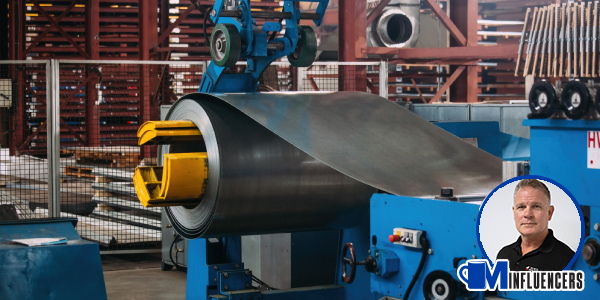UP TO THE MINUTE
Why metal construction companies must embrace technology and how to stay current

MCS Influencer John Kenney says the importance of adopting technology in metal construction cannot be overstated.
The construction industry is undergoing a transformation driven by rapid technological advancements. Contractors stand to benefit immensely from embracing these innovations. The importance of adopting technology in metal construction cannot be overstated, as it directly impacts efficiency, competitiveness and sustainability. Let's explore why technology is crucial for metal contracting companies and how to stay current in this fast-evolving landscape.
The imperative of technology in metal construction
Enhanced efficiency and productivity
Technology can enhance efficiency and productivity within metal contracting companies. Advanced software solutions for project management, design and planning can streamline operations, reducing manual errors and speeding up project timelines. For example, Building Information Modeling (BIM) allows for detailed 3D modeling and simulations, improving stakeholder accuracy and coordination. This leads to fewer reworks, optimized resource utilization and timely project completion.
Improved quality and precision
Precision is paramount in metal construction; even minor errors can lead to significant issues. Technological tools such as Computer-Aided Design (CAD) and Computer Numerical Control (CNC) machines ensure high levels of accuracy in design and fabrication. These technologies enable the production of complex metal components with exact specifications, enhancing the overall quality of construction projects.
Cost savings
While the initial technological investment might seem substantial, the long-term cost savings are considerable. Automated processes reduce labor costs and minimize material wastage. Predictive maintenance systems can identify potential equipment failures before they occur, reducing downtime and repair costs. Moreover, efficient project management tools help adhere to budgets and prevent costly delays.
Sustainability
Sustainability is becoming increasingly important in construction. Technology enables metal construction companies to adopt more sustainable practices. Advanced design tools can optimize the use of materials, reducing waste. Energy-efficient fabrication processes and the use of recycled metals contribute to a smaller environmental footprint. Additionally, green building materials and energy-efficient systems can be incorporated into projects, meeting the growing demand for sustainable construction solutions.
Advice for staying current with technology
Invest in training and education
Continuous learning is essential to keep up with technological advancements. Invest in regular training programs for your employees to ensure they are proficient with the latest tools and software — partner with technology providers to offer specialized training sessions. Encouraging a culture of learning and innovation within your organization will help you adapt to new technologies more seamlessly.
Adopt a forward-thinking mindset
Being open to change and innovation is crucial. Encourage your team to explore new technologies and stay updated with industry trends. Attend industry conferences, webinars and trade shows to learn about the latest advancements and network with technology experts. Subscribing to industry publications and online forums can provide valuable insights into emerging technologies.
Collaborate with technology partners
Collaborating with technology partners can provide access to cutting-edge solutions and expertise. Establish relationships with software developers, tech startups and research institutions. These collaborations can lead to customized solutions tailored to your specific needs, giving you a competitive edge.
Leverage data analytics
Data analytics is a powerful tool for staying current with technology. Collect and analyze data from your projects to identify patterns, inefficiencies and opportunities for improvement. Data-driven decision-making can enhance productivity, reduce costs and improve project outcomes.
Stay agile and adaptable
The technology landscape is constantly evolving. To stay current, your company must be agile and adaptable. Be prepared to pivot and adopt new technologies as they emerge. Create a flexible technology roadmap that allows for adjustments based on industry trends and technological advancements.
Embracing technology is no longer optional for metal construction companies; it is necessary for survival and growth in today's competitive market. Technology offers numerous benefits by enhancing efficiency, improving quality, reducing costs, ensuring safety and promoting sustainability. Staying current with technological advancements requires a proactive approach, continuous learning, collaboration and data-driven decision-making. By following these strategies, metal construction companies can harness the power of technology to drive innovation and achieve long-term success.
John Kenney is the CEO of Cotney Consulting Group. See his full bio here.

















Comments
Leave a Reply
Have an account? Login to leave a comment!
Sign In